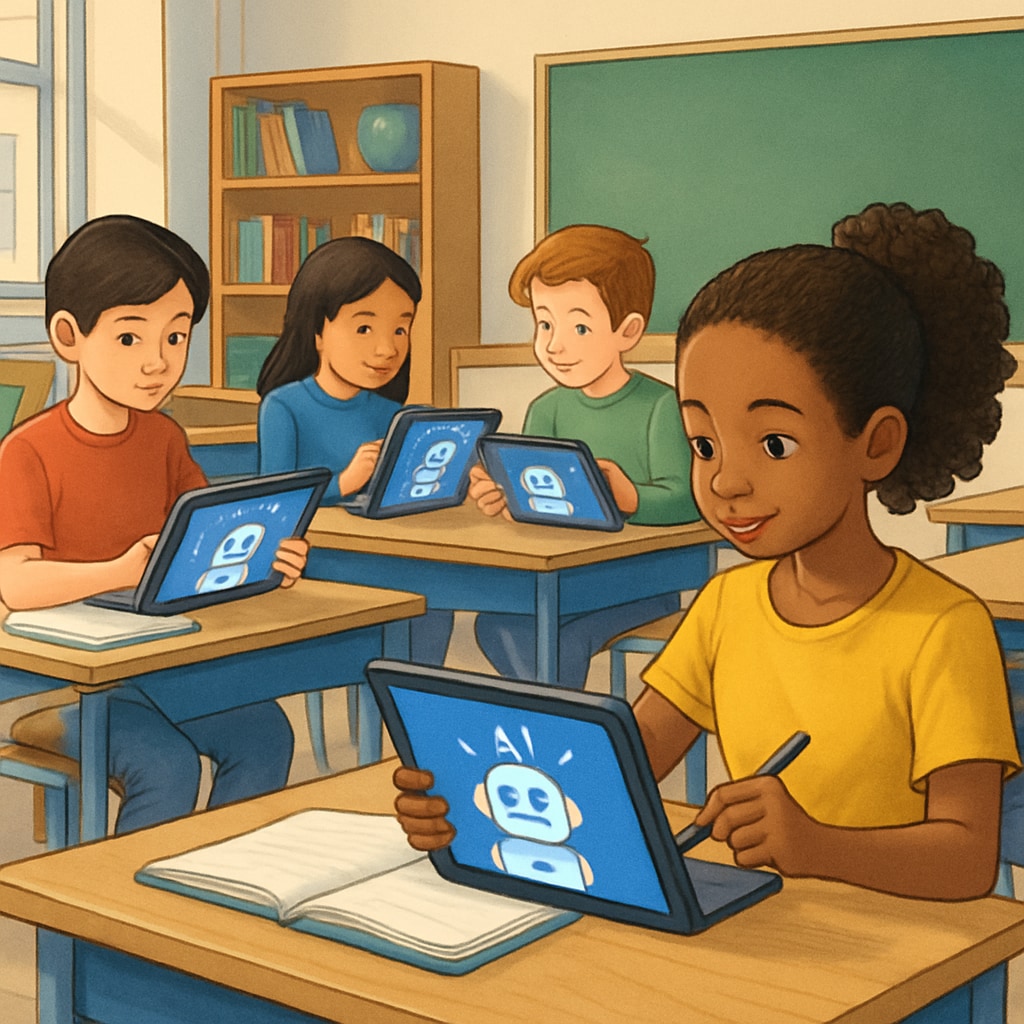The integration of artificial intelligence in education marks a significant milestone in the ongoing global education transformation. This shift is driven by the promise of AI to enhance learning experiences and optimize teaching methods. From personalized learning platforms to intelligent assessment systems, artificial intelligence is redefining the role of educators and the learning journey of students. As we explore the explosive growth of AI in the education sector, it becomes clear that this technology is not just a tool but a catalyst for shaping the future trends of K12 learning.
Transforming the Classroom with AI: A New Era of Personalized Learning
One of the most profound impacts of AI in education is its ability to personalize learning experiences. Unlike traditional, one-size-fits-all teaching methods, AI-driven platforms can adapt to the unique needs of each student. For example, AI algorithms analyze a student’s performance, identifying strengths and weaknesses to deliver customized content and exercises tailored to their learning pace.
Platforms like DreamBox and Carnegie Learning are prime examples of this transformation. These systems use machine learning to continuously adapt to students’ progress, ensuring that no learner is left behind. As a result, educators can focus their efforts on fostering critical thinking and creativity while relying on AI to handle repetitive tasks. This personalized approach not only improves academic outcomes but also boosts student engagement and confidence.

AI-Powered Assessment: Efficiency and Precision
Assessment is a cornerstone of the education system, and AI is revolutionizing this process with unprecedented efficiency and precision. Traditional grading systems are often time-consuming and prone to inconsistencies, but AI-powered assessment tools are changing the game. These systems can evaluate not only multiple-choice questions but also complex assignments like essays and projects.
For instance, platforms such as Gradescope leverage natural language processing (NLP) to assess written work, providing detailed feedback within minutes. Additionally, AI can identify patterns in student performance over time, enabling educators to intervene early and address learning gaps. This predictive capability is particularly valuable in ensuring that students receive timely support, ultimately improving their chances of success.

The Global Implications of AI in K12 Education
The adoption of AI in education is not limited to developed countries; it is a global phenomenon with significant implications for bridging educational inequities. In regions with limited access to quality education, AI-powered tools can democratize learning by offering high-quality resources to underserved communities. For example, platforms like Khan Academy are leveraging AI to provide free, world-class education to students across the globe.
However, the global impact of AI in education also raises important questions about ethical considerations and data privacy. As AI systems collect vast amounts of data to personalize learning experiences, stakeholders must ensure that this data is used responsibly and securely. Policymakers, educators, and technology providers must collaborate to establish guidelines that protect students’ rights while fostering innovation.
Challenges and the Road Ahead
Despite its transformative potential, the integration of AI in education comes with challenges. The digital divide, for instance, remains a significant barrier to equitable access. Many schools, particularly in low-income areas, lack the infrastructure and resources needed to implement AI-driven solutions effectively. Additionally, there is a learning curve for educators who must adapt to using these new technologies in their classrooms.
Looking ahead, the key to overcoming these challenges lies in collaboration. Governments, educational institutions, and technology providers must work together to ensure that AI benefits all students, regardless of their socioeconomic background. Investments in teacher training, digital infrastructure, and ethical AI development will be critical in realizing the full potential of this technology.
In conclusion, artificial intelligence is driving a revolutionary transformation in education, setting the stage for a future where learning is more personalized, accessible, and efficient. As we navigate this exciting journey, it is essential to address the challenges and ethical considerations that come with it. By doing so, we can ensure that AI serves as a powerful ally in shaping the future of K12 education.
Readability guidance: This article uses short paragraphs and clear headers to improve readability. Lists and examples are included to summarize key points, while overuse of technical jargon is avoided. This ensures accessibility for a broad audience, including educators, parents, and policymakers.


